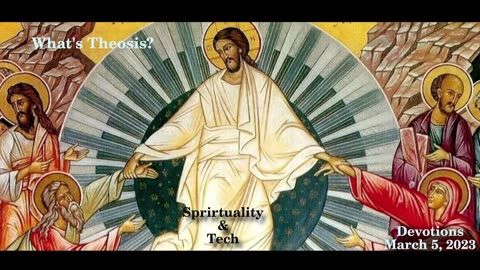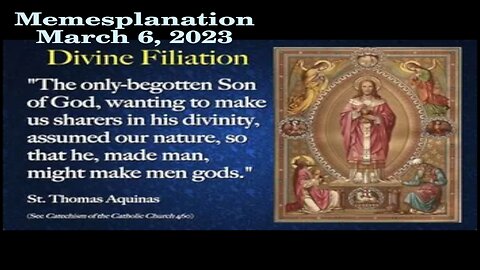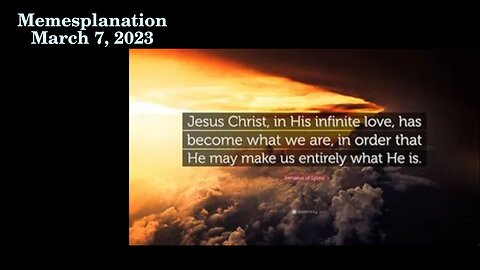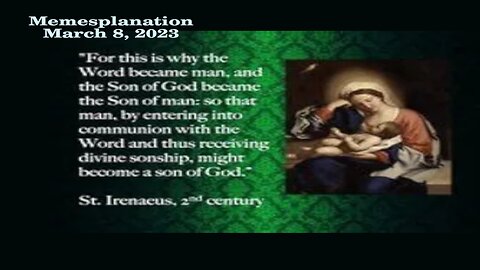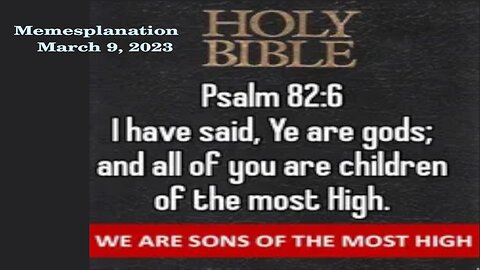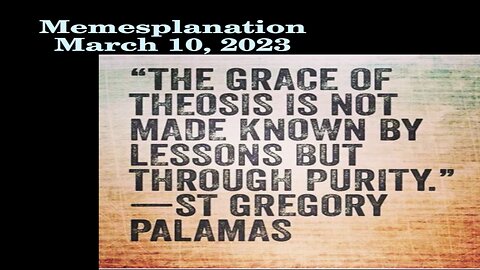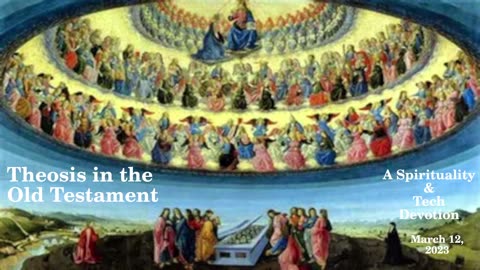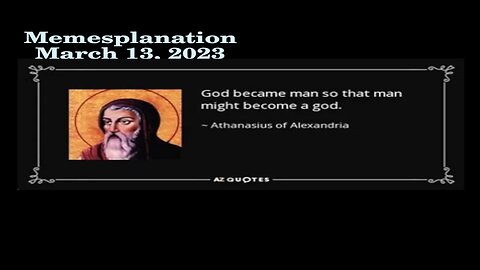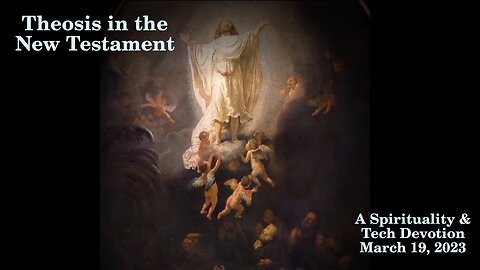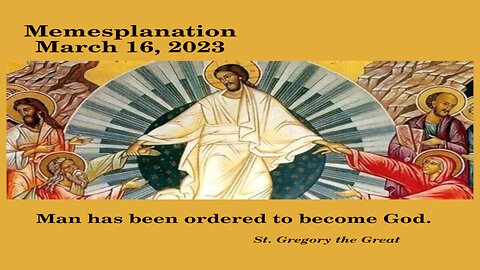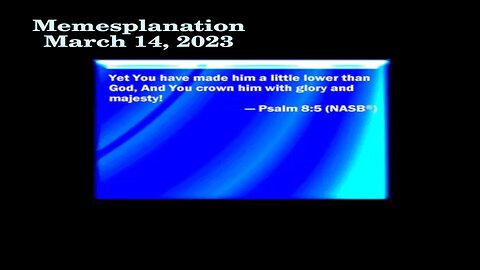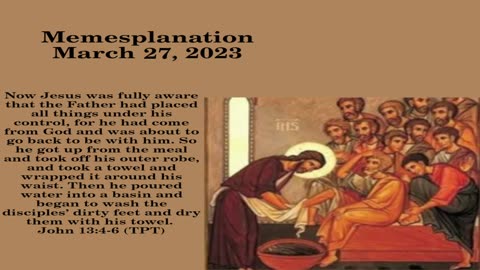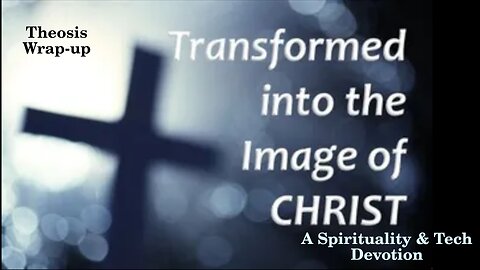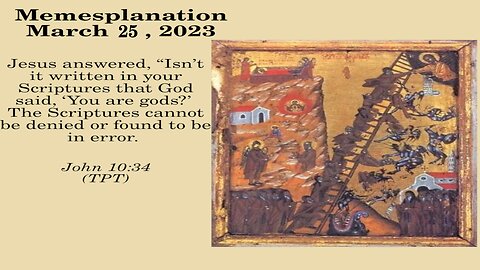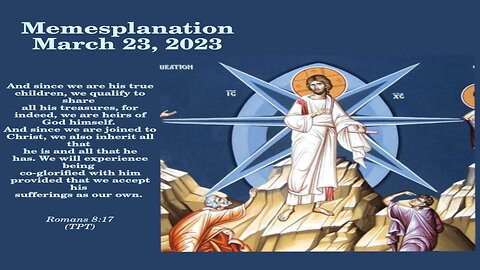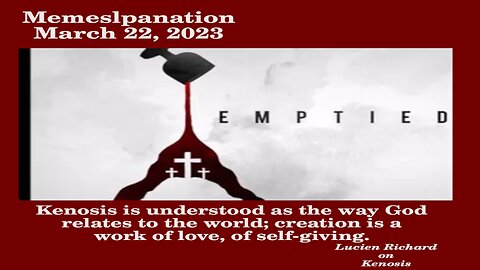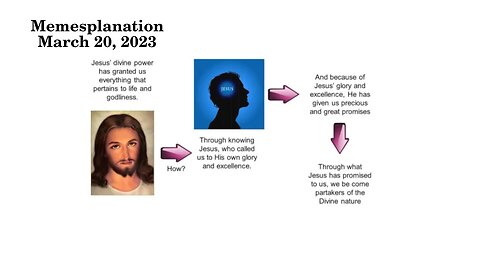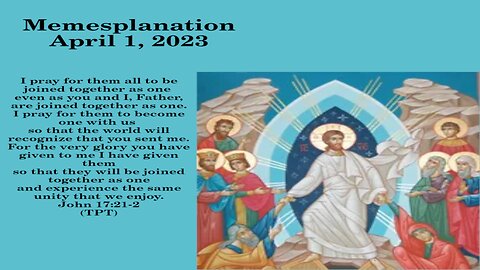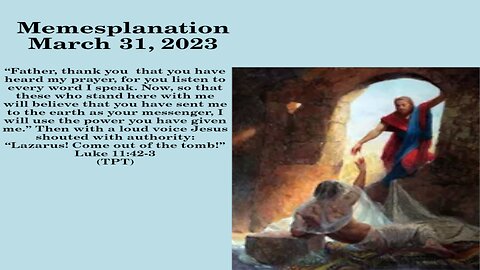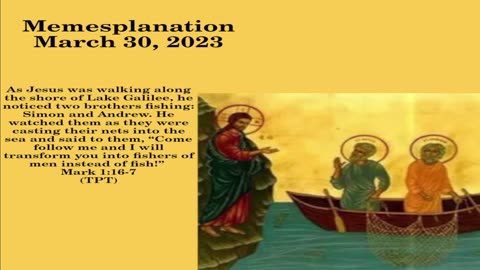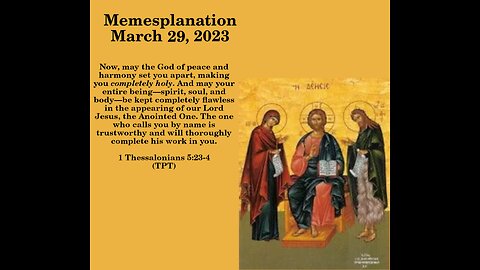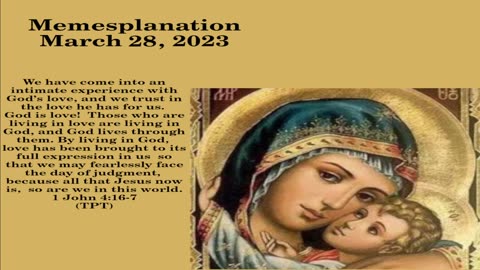Premium Only Content
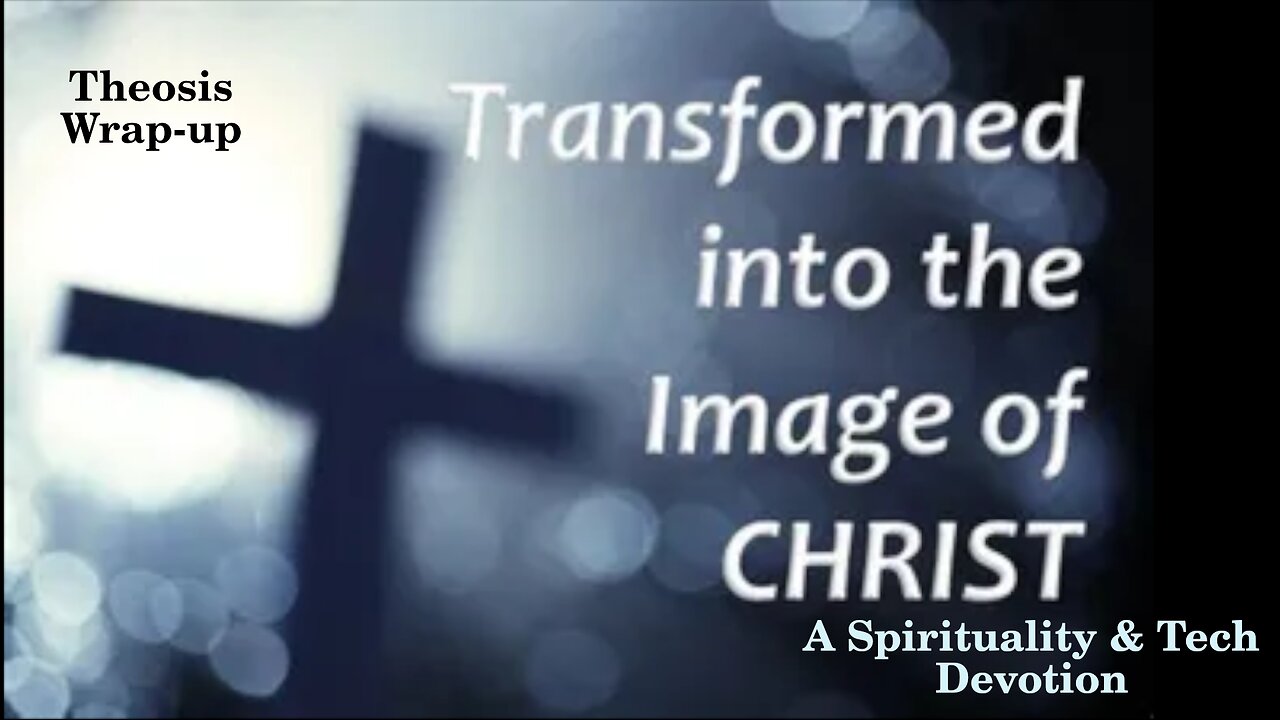
Theosis week 1 Promo
What's Theosis? Week 1
Memesplanation Short 80
Memesplanation Short 81
Memesplanation Short 82
Memesplanation Short 83
Memesplanation Short 84
Theosis 2 Promo: Old Testament
Memesplanation Short 89
Memesplanation Short 85
Theosis 4 Promo
Memesplanation Short 89
Memesplanation Short 88
Memesplanation Short 87
Memesplanation Short 86
Memesplanation Short 97
What’s Theosis, Anyway?
Memesplanation Short 96
Memesplanation Short 95
Memesplanation Short 94
Memesplanation Short 93
Memesplanation Short 92
Theosis 3: Theosis in the New Testament
Memesplanation Short 102
Memesplanation Short 101
Memesplanation Short 100
Memesplanation Short 99
Memesplanation Short 98
What’s Theosis, Anyway?
Father,
Send Your Holy Spirit to guide us and knit us together in love, that we would learn to love. That we would truly prefer one another and have that as a testimony in the world, rather than legalism and fractious competition. Let that shift in each of us unlock the way forward to greater unity with You. Help us to take the meat, so to speak, and throw out the bones. Help us to grasp the depth of this topic and cause that to birth a greater desire for you.
In Jesus’ name,
Amen
In the last month, we have looked at definitions and scriptural references for the concept of theosis. I have a suspicion that if we grow closer to God on an individual level, then the larger divisions in the Church will start to fall away. I really love John 17, and you’ll see a glimpse of that in Saturday’s memesplanation. So, what is theosis? Theosis is the doctrine, from the Eastern Orthodox side of the family tree, that teaches that the purpose of salvation is that we would be able to be united with God in some way. This takes not only identity work, but a complete 180 in how we relate with the world.
I say that it takes identity work because until we realize who and whose we are, in Christ, this whole process is unlikely to ever take place in us. We need to know that we do not need to defend ourselves because our Father will always protect us. We need to know that we are so loved by Him, that even were it only for one of us, He would have still sacrificed Himself to be reconnected with that one human being. Yes, even you. Yes, even me. Then, as we become rooted and grounded in that love, the next step is to allow it to flow out from us. Love on people. Bless them. Do not be concerned with reciprocation, let God deal with those who don’t handle it well. Love without boundaries or limits, as the Lord guides you. Yes, as you grow closer to to Him, you will begin to hear His voice more and more clearly. His voice will become life to you. His heart will begin to unite with yours. That is the essence of theosis, divinization, glorification, Christian Perfection, or deification, and I would even hazard that sanctification is not really that far off from this, either.
Then we opened the Bible, first looking at the Old Testament (very quickly) for hints that that is something we should expect or not. I was not anywhere near exhaustive, but there were a few passages which I pulled at which seem to suggest these sorts of things. The most famous passages are in the Psalms (8 & 82, to be precise), and could be understood in multiple ways, given context. Maybe not the strongest argument for it, however, the notion of being “created in the image of God” from Genesis seems to be the strongest foundation for this line of thinking, at least in my opinion. Then, last week, we looked at a handful of passages in the New Testament. This is where we find the bulk of support for this idea. Jesus Himself, in John 17, and other places, not only taught that His Father is ours as well (which makes us Sons of God [son, here, is a neutral term. Women are not excluded or minimized in any way]) but prayed that we would live in a love-based communion, just as God does, and that that would draw the nations unto the Kingdom, and through that, change the world. Philippians 2 also speaks to the nature of Jesus’ love for us, a kind of love that we are exhorted to grow into in the Johanine and Petrine epistles (those from Peter and John), as well as elsewhere in Paul’s letters. As children of God, see Romans 8, we must share in our Father’s nature in some way, and we also stand to inherit all He is, but we must accept Jesus’ suffering as our own in order to fully activate that promise and become One with God. Without the suffering, we would simply revert to pride, and take the power and authority for granted, using it in precisely the opposite spirit to that of Jesus.
What do you guys and gals think? Is Theosis a line of thought and belief that is worthy of more thoughtful and prayerful engagement? Let me know what you think in the comments.
-
 4:04:32
4:04:32
Alex Zedra
11 hours agoLIVE! New Scary Game w/ Heather
124K3 -
 49:19
49:19
barstoolsports
15 hours agoThe Game is Officially On | Surviving Barstool S4 Ep. 5
169K5 -
 4:33:30
4:33:30
BSparksGaming
11 hours agoYou're Next FAVORITE Rumble Streamer! Hump Day BO6 Grind! #RumbleTakeover
61K2 -
 3:22:22
3:22:22
Pepkilla
12 hours agoCan we get to Silver II on ranked toniiiight ~
45K1 -
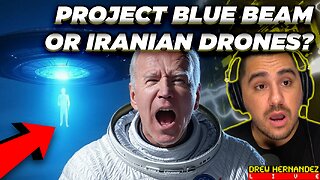 5:00:49
5:00:49
Drew Hernandez
12 hours agoPROJECT BLUE BEAM OR IRANIAN DRONES?
63K41 -
 1:42:58
1:42:58
Kim Iversen
15 hours agoEvacuating My Christian Family from Al-Qaeda-Controlled Syria: Kevork Almassian | Trump To End Birthright Citizenship? Jamarl Thomas
155K97 -
 33:31
33:31
Stephen Gardner
12 hours ago🔴JUST IN: DA Alvin Braggs THREATENS Trump | Canada Justin Trudeau OFFENDS Americans!
87.2K314 -
 2:25:09
2:25:09
Barry Cunningham
13 hours agoThe Evening News: Chris Wray Resignation Has Media In FREAKOUY Mode!
90.7K35 -
 1:49:35
1:49:35
I_Came_With_Fire_Podcast
16 hours agoNEW JERSEY UAP/DRONES—What are they!?
39.6K11 -
 1:28:56
1:28:56
Flyover Conservatives
1 day ago5 Ways to Participate in America’s Financial Revival - Clay Clark | FOC Show
53.1K1
